Political Canons, Collingwood, Idealism and Decolonialisation

Interview by Richard Marshall
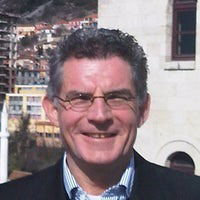
'The post 1492 world of Empires that came to encompass almost all the world, with Great Britain incorporating almost twenty-five percent of it, transformed the globe. Most of the great liberation writers including Du Bois, Fanon, Memmi, Cabral, Nkrumah, Freire engaged with the western thinkers, exposing the hypocrisy of their espousal of universal high ideals, which were exclusive to those who had a attained a certain level of civilization, western white males.'
'The task of the modern-day philosopher considering the canon is not so much to ‘construct’ or reconstruct it, but to investigate how it has come to be what it is. The conclusion soon becomes evident. This so-called canon is a moving feast and looks different in the way it is conceived in almost every history of political thought, or characterisation of a political tradition.'
'The theoretical counterpart to duty, for Collingwood is history. The purpose of all this is to show that the categories of savagery, barbarism and civilization, which modern anthropologists used to describe progress in human history, was a misunderstanding.'
'When Gentile’s philosophy of activism steered him towards Italian Fascism, Collingwood disowned him, but still believed in the efficacy of some of his philosophical arguments. Collingwood was much closer to Croce and de Ruggiero politically, and was a great admirer of European Liberalism.'
'The British Idealists were reacting against British Empiricism and Scottish Common-sense philosophy. It was almost wholly a Scottish phenomenon.'
'Oakeshott, for example, did not engaged at all with the modern trends in philosophy, having little or no contact with Russell, Moore and Wittgenstein at Cambridge. When asked if he knew Wittgenstein in those days, he answered dismissively that there were a lot of Viennese clowns in Cambridge in those days.'
'Henry Jones wielded an immense personal influence in Edwardian politics. His early philosophical writings were detailed, analytic and incisive. His articles in Mind, for example, are models of clarity, and he introduced the work of Lotze to English speaking audiences.'
'Idealism in International Relations was associated with the failure of liberal internationalism, or utopianism as E. H. Carr pejoratively named it. It is about ideals of world peace and a harmony of interests, or peaceful co-existence, and particularly the idea that the better educated we are the greater the chances of reason prevailing in the relations among nations. Philosophical Idealism is something quite different. It is a doctrine about how the mind is constitutive of the world we live in.'
'Mandela is still the darling of the west, while at the same time accused of selling-out by growing numbers of young South Africans, ironically as J. C. Smuts was when advocating human rights on the world stage at the United Nations, while oppressing native peoples at home.'
'The early Dylan exemplifies a movement of which he was part, with a collectivist outlook based on principles of social and political responsibility. Going electric constituted a rejection of the folk movement and its collectivist world view.'

David Boucher's interests include Modern Political Theory, History of Political Thought, Theory of International Relations, Human Rights, Collingwood and British Idealism, and Popular Culture. Here he discusses philosophical isues arising from the notion of a political canon, the political philosophy of RG Collingwood, his relationship with Italian Idealism, British Idealists and Hegel, their politics and relationship to Darwin, Oakshott, Henry Jones, the failures of decolonialisation, the political and legal legacies of Hobbes, an aside on Schmitt and the political art of Dylan and Cohen.
3:16: What made you become a philosopher?
David Boucher: As an undergraduate at University College, Swansea in the early 1970s the head of department, W. H. Greenleaf had organized the curriculum around Michael Oakeshott’s famous essay ‘The Study of Politics at a University’. Politics was not a discipline, but a subject matter to be studied through different languages of explanation, philosophical, historical and scientific. The language of practical politics, the injunctive rather than explanatory mode, was left to ‘practitioners’. There were ten or more political philosophers in the Department of Political Theory and Government in those days addressing fascinating aspects of politics and international relations. Greenleaf was himself a philosophical idealist, a former Ph.D. student of Oakeshott, and he taught the history of political thought in conformity with Oakeshott’s triadic conception of political thought, a conception which I extended and elaborated in my Political Theories of International Relations from Thucydides to the Present.
The real stimulus to my passion for political philosophy was first of all the sheer astonishment that certain conclusions and ways of thinking could be subscribed to by perfectly rational men and women. To dismiss them, as many philosophers did in those days was easy and usually anachronistic, but to understand why they reached those conclusions and found them compelling was a much more difficult task. Bruce Haddock introduced me to the philosophies of history of Michael Oakeshott and R. G. Collingwood, and they taught me that philosophy was all about asking the right questions. Both Collingwood and Oakeshott were latter day philosophical idealists, but it was Peter Nicholson who introduced me to the first generation of British idealists who so radically transformed and eclipsed empiricist philosophy in Britain during the 1870s until the end of the First World War, after being under siege from Russell, Moore and Cook-Wilson for some time. My enduring fascination with interpretation, which is evident from my first book, Texts in Context, to my most recent, Appropriating Hobbes, was stimulated by an initial bemusement at the simple fact that the meaning of texts was not wholly in control of the author. How could Machiavelli, for example, be understood as the most evil man in history by Leo Strauss, and as the most moral man in history by Father Leslie Walker, the translator of the Discourses.
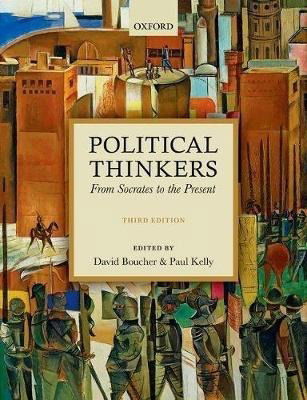
3:16: You’re interested in philosophical questions arising in politics – and once you start doing that it seems you have to be interested in all sorts of things – ethics, law, history, anthropology, sociology, even theology and metaphysics. You’ve edited a book that presents a canon of political thinkers so can you begin by saying how you chose the people you did and what are the reasons you think we should continue to study political thinking and thinkers? Some might push back against the whole activity of constructing a canon – all those dead white males, do they have anything left to say that’s relevant in a context that has moved too far away from the conditions that made their thinking remotely relevant is what someone like Alex Rosenberg might say – how do you answer them?
DB: This is an interesting and many faceted question. First, Paul Kelly and I conceived of Political Thinkers as a substitute for Strauss and Cropsey, History of Political Philosophy, with chapters written by leading experts of the day on a wide range of thinkers, western and non-western. Political Thinkers was not only a collaboration between the two editors, but also with Oxford University Press which surveyed scholars throughout the world in order to determine what was being taught, and what they would like to see in a new history of political thought.. This entailed compromises on our part, but not on the importance of the thinkers selected and the calibre of the authors we chose to write about. We had a template which ensured authors explained why particular thinkers were important, how they had been interpreted, and finally to give their own interpretive twist. Because the book was to cover the period from the pre-Socratics to the present, we decided to focus on the western tradition, and the vocabulary of politics that had developed within it, and over the three editions we have been responsive to suggestions for including, for example, Cicero, Grotius, and Arendt.
The criteria of selection have been consistent. The significance of the author in his or her own time, and the significance of the contribution made to the development of the vocabulary of politics for our own time. The book has sold over 30,000 copies, and has been translated into Arabic for the purpose of introducing western thought to the Arab world. Second, the western centric focus of the text was deliberate, but did not wish to suggest, or even imply, that other traditions of thought are unimportant in comparison with the west. Indeed, the question ‘why do we need to read about all these dead white males’ was explicitly posed to me by a group of South African students at the University of Johannesburg, where I spend a couple of month a year. My answer is that these thinkers served to shape the world we live in, through their justifications, and objections to European expansionism. The post 1492 world of Empires that came to encompass almost all the world, with Great Britain incorporating almost twenty-five percent of it, transformed the globe. Most of the great liberation writers including Du Bois, Fanon, Memmi, Cabral, Nkrumah, Freire engaged with the western thinkers, exposing the hypocrisy of their espousal of universal high ideals, which were exclusive to those who had a attained a certain level of civilization, western white males.
3:16: Your pluralist approach takes up four considerations to shape your canon – what are these and why do they in turn help you answer the question we started with i.e. what’s the criteria for inclusion?
DB: A canon is an essentially contested concept in any field of study, and especially in the history of political philosophy. I know the factors that came to shape the canon as we have come to understand it (philosophical, historical, scientific, practical and legal), but it is very different canon now from the canon as originally conceived by those who constructed it in the nineteenth century. Here we need to take into consideration the level of discourse at which thought about politics takes place. There is thought that is immediate, concerned with the politics and policy of the moment, such as the Putney debates; thought that attempts to discern principles that may guide future actions, and perhaps explain how we came to be where we are now, socially and politically. This is essentially ideological thought, such as Marx and Engels, The Communist Manifesto: and thinking about politics in an altogether rarefied atmosphere, where the activity is viewed in relation to much larger wholes, such as experience as a whole, or western civilisation; the human predicament etc. Before one can ‘construct’, or subscribe to, a ‘canon’ a stance has to be taken on these fundamental issues. The early constructors, such as Hallam, but especially Blakey, described the genre as ‘political literature’, and took reflection at all three levels to be eligible for inclusion. Blakey, included, ballads, poems, newspapers, along with Blake and Milton, international jurists, and the usual suspects.
The task of the modern-day philosopher considering the canon is not so much to ‘construct’ or reconstruct it, but to investigate how it has come to be what it is. The conclusion soon becomes evident. This so-called canon is a moving feast and looks different in the way it is conceived in almost every history of political thought, or characterisation of a political tradition. One cannot separate the history from its author, and the interesting question to answer is what the author is presupposing in his or her construction, and the connections he or she wishes to establish. We need to know, for example, whether the author believes that there are eternal perennial question to which political thinkers through the ages have contributed, such as Sheldon Wolin’s Politics and Vision which imagines transhistorical conversations between thinkers, or whether the context is the only game in town, as Quentin Skinner believes in Hobbes and Republican Liberty. Incidentally, for him, political philosophy is no different from reflection about politics at the other two levels, in that they are all ideological interventions into contemporary controversies.
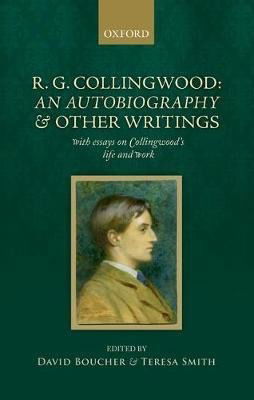
3:16: Collingwood is one of the thinkers who you have written about, a rather neglected figure when it comes to his political thought at least and a polymath – he seemed to know everything! How would you characterize his political thought – was he part of the liberal tradition or socialism and given that he was someone who wrote a grand theory book ‘The New Leviathan’ why has he been someone whose politics haven’t been as centre stage as you might have thought? You see his project of distinguishing utility from right and right from duty as being a major contribution to political thinking don’t you and it strikes me that these are distinctions that still resonate and have traction today?
DB: The New Leviathan was Collingwood’s last book, written while he was seriously incapacitated by a series of strokes. He turned away from completing his life’s work on the philosophy of history, to make his war effort; his contribution to fighting the Nazis and Fascists. He does this by showing that the social contract tradition, especially in the writings of Hobbes, Locke and Rousseau, was deficient, and that Hobbes’s great book Leviathan, needed to be brought up to date in the light of advances in our understanding of psychology, ethics, and politics. The deficiency he identified was that the emergence out of the state of nature was not understood as a continuous process, and that the criteria for cognitive competence for inclusion in the social community changes according to the complexity of the society. In any one body politic coexists a non-social and social community side-by-side, with the former constantly replenishing the latter once its members are recognized to have satisfied the criteria, which in an aristocratic society are set high, and in a democratic society are more inclusive. The tension between the two characterizes, for him, modern politics.
Socialization and Civilization are part and parcel of the same process which is the gradual elimination of force from our relations with fellow members of the body politic, between bodies politic, and between human beings and nature. With regard to nature, Collingwood recognizes the principle of sustainable development, the responsible exploitation of resources, human being collaborating with, rather than dominating, nature. His theory is developed in conformity with a theory of mind and ethics which give clear expression to practical and theoretical reason. Theory and practice for him overlap, all theoretical questions for him arise in practice and return to practice for their answers. His distinction between utility, right and duty arises in the context of practical reason, that is, they give answers to question why we do certain things, because it is useful, because it is right (there is a rule to follow), and because it is my duty. In each case the element of caprice is gradually almost eliminated completely. My duty is the most determinate, in that it is my duty and no one else’s. Given the sort of person I am, having the sorts of experiences I have, my duty is the only thing I could have done in the circumstances.
The theoretical counterpart to duty, for Collingwood is history. The purpose of all this is to show that the categories of savagery, barbarism and civilization, which modern anthropologists used to describe progress in human history, was a misunderstanding. We move from savagery to civilization, the constant process of conversion from the non-social to the social community consistent with the development of mind to the level of practical reason. Barbarism is not a stage on the way to civilization, it is a revolt against it. Nazism is one such revolt in a long line of revolts including the Saracens; the Albigensian heresy in the south of France; and the Turks. The fourth part of the book is the least satisfactory, written when he was very seriously incapacitated. Incidentally, Las Casas in his categorization of different types of Barbarism gives great emphasis to how civilized peoples become barbarized in the colonial experience, dehumanizing and brutalizing native peoples as the Spanish did with American Indians.
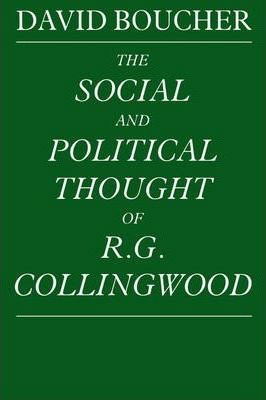
3:16: Why isn’t the New Leviathan more widely read today?
DB: It was written at a time when Logical Positivism was in the ascendancy and doubts about the efficacy of modern normative political theory were prevalent. Ordinary language philosophers such a Weldon argued that the job of the political philosopher was to clarify how political concepts were used. Collingwood’s contribution of a grand theory, deferring to Hobbes, who many saw as the prophet of absolutism, and not as Collingwood saw him the philosopher of authority rather than force, did not resonate with post-war philosophers. Indeed, political philosophy was deemed to have been on a two thousand year detour, and was pronounced dead in 1956 by Peter Laslett. Its resurrection, principally by Rawls, changed the whole character of political philosophy. The social contract became, not a theory explaining the establishment of government and political authority, but of deciding upon the principles of social justice, or distributive justice. Liberalism and social justice became the only game in town, and the likes of Oakeshott (On Human Conduct) and Collingwood were not addressing the same questions. Collingwood certainly does have a theory of social justice, but it is not to the fore of his argument. He described himself as a liberal of the continental variety, which meant social liberalism closely associated with Hobhouse and Hobson in his day.
Because of some of the views expressed in the final book of The New Leviathan, Oxford University Press allowed it to go out of print. Collingwood himself pointed out that this aspect of the book was likely to be the least satisfactory in terms of the quality of the argument. It says some harsh things about Muslims, and the tendency of their religion to succumb to a form of herd worship or subservience (a criticism he also made of the Germans).
3:16: How does his Idealism play an important role in shaping his political thinking – and what are the main features of his version of Idealism?
DB: This question presupposes that he was an idealist! The book that gives us the strongest reason to think him a philosophical idealist is Speculum Mentis. Published in 1924, it was already considered to be in the death throws of that movement. It was described as the Crocification of Hegel (but it also owed much to the Italian Gentile). It was an attempt to conceive experience as a whole, and its mutilation into different discrete, but overlapping, hierarchically related forms of experience, logically related in that each form higher in the scale attempts to resolve the contradictions in the form below it. These forms of experience were art, religion, science, history and philosophy. Each, as a form of experience, was a mental construct, conceiving the whole of experience from a limited and flawed conditional perspective, built upon unquestioned postulates. Collingwood himself described the book as his most Hegelian. Thereafter, he wanted to distance himself from much of what idealism argued.
Let me give you an example of how he tried to do this. He believed himself to be a revolutionary in logic. Realism subscribed to the correspondence theory of truth, whereas Idealism equated truth with the coherence of a world of ideas. Both, however, took propositions as their unit of analysis – they were propositional logics, and the proposition was either true or false in relation to an external world, or in relation to a world of ideas. Collingwood’s logic of question and answer, which entailed his theory of absolute presuppositions was not a propositional logic. Absolute Presuppositions are not propositions, and we do not ask whether they are true or false, only if they are absolutely presupposed. This conception of logic had wide-ranging implications for his thinking, and led many to accuse him of relativism. He was not, however, a relativist, but instead an historicist, or relationist, in that because he had a developmental conception of the mind, and a view of civilization that entailed the elimination of force from our relations with others, he had a criterion by which he could judge one age against another, as Hegel did in his philosophy of history.
3:16: What’s the relationship between Collingwood and the Italian philosophers Croce, Gentile, de Ruggiero and Collingwood’s attitude towards growing fascism of the time? Again, you’d have thought that his prescience in seeing the importance of the dangers of fascism would have made him more well known as a political thinker than he is, wouldn’t you?
DB: Collingwood was a great admirer of Italian Idealism. He was a friend of Gentile, Croce and the much younger de Ruggiero. He translated works by the latter two. In terms of logic, particularly the logic of question and answer, Collingwood appropriated elements from Gentile and made them his own. When Gentile’s philosophy of activism steered him towards Italian Fascism, Collingwood disowned him, but still believed in the efficacy of some of his philosophical arguments. Collingwood was much closer to Croce and de Ruggiero politically, and was a great admirer of European Liberalism. He travelled extensively in Europe and from as early as 1930 he is warning of the rise of right-wing extremism and intolerance in Spain, Italy and Germany. He was an admirer, for example, of the Spaniards Ortega y Gasset, The Revolt of the Masses and Unamuno, The Tragic Sense of Life.
You would have thought that he would have been more well known as a political thinker if only because of his stand against the growing tide of fascism and Nazism in Europe. He was, indeed, much more vociferous than his Oxford colleagues, many of whom favoured Appeasement. Because Collingwood was so closely associated with Idealism, despite his attempt to abjure the label, and because political philosophy on the ‘grand-scale’ was considered dead, Collingwood was a casualty. However, his Principles of Art continued to be extensively read and has never been out of print since it was first published in 1937. One of the principal warnings in that book is of the corruption of consciousness, the suppression of emotions, which undermines and corrodes the very fabric of society. All of his books, are heavily political, subversively so, but few people interested in political philosophy have detected this. His innocuously titled An Essay on Metaphysics, ends with an ominous warning: ‘The fate of European science and European civilization is at stake. The gravity of the peril especially is the fact that so few recognize any peril to exist’ (p. 343).
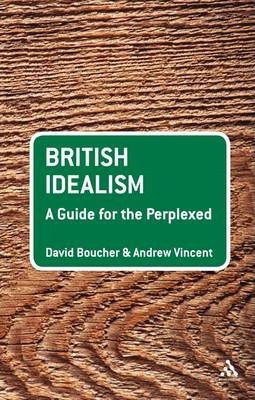
3:16: He’s often grouped with the British Idealists, the movement that Russell, Cook Wilson and Moore challenged at the start of the twentieth century, attacking Hegel. First, can you say what it was about Hegel that appealed to the British Idealists and why they went to Hegel and not, for example, Darwin and Spencer for their inspiration given that evolution rather than emanation was a genuine option at the time? And how would you characterize the British Idealists?
DB: The British Idealists were reacting against British Empiricism and Scottish Common-sense philosophy. It was almost wholly a Scottish phenomenon. If it was not for the fact that the three major figures are English, Green, Bradley and Bosanquet, we would be describing it as Scottish Idealism. Not many of them overtly saw themselves as Hegelian. It was principally Hegel’s ontology to which they subscribed, which they preferred to Kant’s, but in many other respects they were Kantians. What this means is that on the question of the relationship between mind and reality they convicted Descartes of dualism. Descartes, they complained, believed that the mind must conform to reality, and in doing so he set up a dualism that epistemology has been unable to overcome. Kant recognized the problem and asked, instead of making mind conform to reality, why not make reality conform to mind! By means of a priori categories, such as space, time, velocity, providence etc., we make reality conform to our concepts, but because it is mediated through them we cannot know things in themselves. Kant, nevertheless, began and ended with a dualism which took us no further to connecting the mind to the reality it is claimed to know. For Hegel, and the Hegelians, the problem of epistemology is a misnomer. If we begin by rejecting dualism, as Hegelianism does, and instead begin with the idea of the unity of experience, or of the universe, as whole. What then has to be explained in not how the mind attaches itself to reality, but instead how this undifferentiated whole came to be differentiated into all of the various distinctions we have come to experience. It is now a problem of ontology rather than epistemology.
This issue of differentiating the whole into its component parts is common to idealists, and it is what Hegel is doing in The Phenomenology of Spirit. Some idealists such as Henry Jones and Edward Caird subscribe to Hegel’s philosophy of history, and only few, such as Bradley and Oakeshott, subscribe to the view that philosophy has nothing to contribute to practical life. In other words the analogy of the Owl of Minerva is not one which they embrace: ‘When philosophy paints its grey on grey, then has a form of life grown old. The Owl of Minivers spreads its wings only with the coming of dusk.' In other words, the philosopher reflects on what has happened and is not a clairvoyant attempting to predict, or indeed change the future. For most of the British Idealists, excepting Bradley and Oakeshott, philosophers had to change the world.
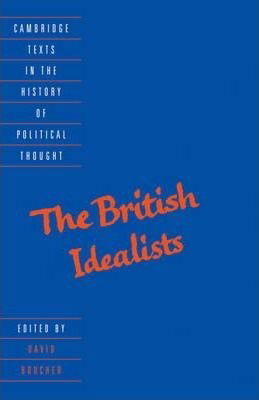
The idealists did describe themselves as evolutionists. Every thinker worth his or her salt had to take a stance on evolution after 1859 when The Origin of Species was published. They agreed with Darwin that nature and Spirit are continuous, but rejected his naturalistic premises. Spirit, for them, could not be explained with reference to nature, the higher understood in term of the lower. They also rejected ethical evolution, the sort proposed by Huxley and Wallace, which posited that natural and ethical evolution were separate process, the latter in conflict with the former. The idealists were exponents of what I describe as Spiritual Evolution, what Hegel called emanation. Ritchie most explicitly and self-consciously saw himself in these terms, but all of the idealists bought into the idea. Evolution for them was a continuous process in which the lower had to be explained in terms of the higher, but not in a teleological manner. This understanding of evolution saturates idealism, but it has been little noticed. Henry Jones, for example, wrote Browning as a Philosophical and Religious Teacher (1892) in which he claims the universe of discourse that dominates Browning’s thinking is evolution: ‘Evolution necessarily combines all the objects to which it is applied into a unity.’ (p. 207). The idealists had much greater respect for Darwin than they did for Spencer, who on the whole they thought a fool.
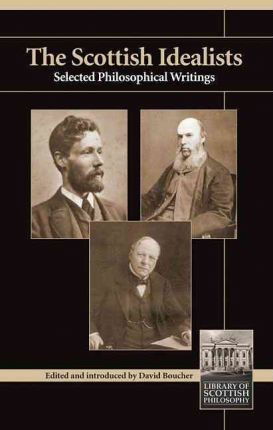
3:16: Collingwood arrived at Idealism after attacks from the analytics. Oakeshott was another figure who joined its ranks late. So can you sketch for us what makes the British Idealists distinctive and say whether the assaults on it from the early analytics changed the way it progressed in figures like Collingwood and Oakeshott? The standard account is that it retreated after Russell et als’ attacks – is this true, or did it just duck and keep its head down whilst continuing to be influential, particularly in political and social thinking?
DB: To a large extent, the handing over of the reins from Idealism to analytic philosophy illustrates Thomas’s Kuhn’s observation that sociological just as much as rational factors play a significant part. Two giants of British idealism, Bradley and Bosanquet, and the lesser known Henry Jones, lived on until the mid-twenties and were indeed influential. The First World War took its toll on idealism which began to be viewed as Edwardian, moralistic and militaristic because of its German origins. L. T. Hobhouse’s Metaphysical Theory of the State was influential in tarring Idealism with the absolutist state brush. However, idealism dominated university administrations until after the Second World War, with many becoming Principals and Vice-Chancellors, such as Knox, Hetherington and Lindsay. Collingwood and Oakeshott were the ball-carriers for the new generation, but they were very much viewed as an anachronism among their colleagues. Oakeshott, for example, did not engaged at all with the modern trends in philosophy, having little or no contact with Russell, Moore and Wittgenstein at Cambridge. When asked if he knew Wittgenstein in those days, he answered dismissively that there were a lot of Viennese clowns in Cambridge in those days.
Realism, positivism, nor analytic philosophy ever struck a killer blow against Idealism. These movements were up against a formidable foe in Bradley whose analytic skills surpassed almost all his critics. Idealism, in essence, faded away with the demise of its most able exponents. Others remained and were influential in their own ways, such as J. H. Muirhead, J. B. Haldane, H. H. Joachim, as well as Brand Blanchard in the United States, and William Mitchell in Australia.
3:16: Do you see contemporaries like Walzer, Taylor, MacIntyre and Sandel as inheriting many of the salient features of the Idealists and if so what do you think these inheritances are? Is some sort of political idealism with its commitments to social holism, the unity of experience and the responsibilities that flow from this better suited to political thinking and social reform than its rivals?
DB: Not all modern communitarians have close affinities with Idealism. Walzer and Sandel have certain affinities which are I think accidental, or incidental. Taylor and MacIntyre, on the other hand, explicitly avow their allegiances. Taylor taking his inspiration more directly from Hegel, while MacIntyre is avowedly Collingwoodian. The strength of idealism, and its modern inheritance in social and political philosophy is its very strong commitment to social responsibility. In conceiving society as an organism, whose sinews are the moral ties we have with others, harm in any part of the organism is bound to have knock-on implications for the rest of society. For the most part they were advocates of state-intervention, and the criterion they promoted was that legislation should ‘enable’ the individual to act more freely and effectively. For all its amorphousness the idea that state intervention must contribute to the common good differentiated them from ‘individualists’ who viewed the encroachment of the state upon individual liberties as retrograde and harmful, and from socialists whose class analysis of society simply shifted the balance from one class to another.
3:16: You’ve written about Henry Jones who is an Edwardian Welsh Hegelian many of us haven’t come across. He was an important figure in political and social thinking wasn’t he who saw Idealism as a practical creed? What makes him interesting and important?
DB: Henry Jones wielded an immense personal influence in Edwardian politics. His early philosophical writings were detailed, analytic and incisive. His articles in Mind, for example, are models of clarity, and he introduced the work of Lotze to English speaking audiences. He was, primarily, though, a political and social activist, championing the cause of education, particularly for women, of workers rights, and responsible citizenship. He was more explicitly Hegelian than most of the Idealists, but he deviated from him in his belief that the role of philosophy and of the philosopher was to change the world. He was a public intellectual and a supporter of the Liberal Party. The titles of some of his books betray his political commitment: Idealism as a Practical Creed (1909), and The Working Faith of a Social Reformer (1910).
3:16: Given that Idealists are often connected with lefty social reform isn’t Oakeshott a bit odd – he strikes me as being a conservative thinker? How do you assess his political thought?
DB: Michael Oakeshott was a teacher of mine at the London School of Economics as a postgraduate in the mid 1970s. The Conservative Party in the 1970s and 1980s, almost bereft of a philosopher to articulate its principles in a coherent manner since the death of Edmund Burke, was desperate to claim Michael Oakeshott as one of its intellectual heavyweights. Lincoln Allison and Roger Scruton were flying the flag, but they were hardly among the top flight of modern philosophers who all seemed to be supporters of the Left. Oakeshott was certainly not a Conservative Party supporter. He was offered a knighthood by Margaret Thatcher, and declined the invitation. He believed that everyone becomes conservative (with a small c) as they get older when they begin to prefer certainty to uncertainty, and lose that impetuousness of youth. He was against understanding the state as an enterprise association which formulated and promoted goals, conceiving laws as instrumental to attaining them. He preferred to think in terms of civil association, in which individuals are bound by a common subscription to the rule of law, and the authority of the state, whose role was to be more of a referee, than one of the players. He was against ideological politics, whether of the Labour Party or the Conservative Party, and was not against state intervention as such, only intervention that diminished individual choices and sought to impose substantive goals.
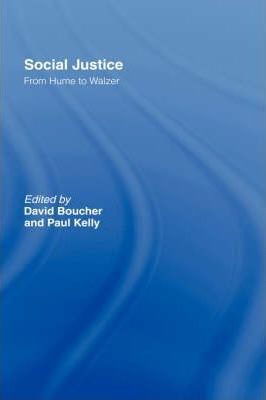
His political philosophy was largely ignored by mainstream political philosophers because he refused to address the same issues with which they were obsessed, liberalism and distributive justice. Instead he asked very different questions, and employed different methods. He enquired, for example, into the character of the modern European State, the nature of rationalist politics, and of the difference between authority and power. He was just as interested in the philosophy of history as he was in political philosophy. He was a constructivist in history, arguing that the historian makes history by inferring from evidence a past that no longer exists. Indeed, there are many different pasts, and the historian’s past is of a peculiarly historical character.
3:16: How do Idealist ideas interact and influence international political thinking? They were in favour of Imperialism both ‘sane’ and ‘insane’ weren’t they and in this respect were different in their approach to New Liberals and Liberal Imperialists? What is sane and insane imperialism here and why were the Idealists not singing from a single hymn sheet in this area?
DB: Idealism in International Relations was associated with the failure of liberal internationalism, or utopianism as E. H. Carr pejoratively named it. It is about ideals of world peace and a harmony of interests, or peaceful co-existence, and particularly the idea that the better educated we are the greater the chances of reason prevailing in the relations among nations. Philosophical Idealism is something quite different. It is a doctrine about how the mind is constitutive of the world we live in. Nothing with regard to conclusions about international relations followed from this. We find the British Idealists engaging in many of the debates of the day. Some were Liberal Imperialists, such as Haldane and Ritchie, who tended to favour the view that Britain at the very least should hold onto its Empire and preferably increase its share of the world surface in the scrabble for extra territory.
At its extreme it saw the Empire as a solution to the social problems of the cities in Britain by exporting surplus individuals to the colonies. This had already happened in the 1820s after the Napoleonic wars when ships from all over Great Britain and Ireland transported colonisers to South Africa. The 1820 Settlers were to have profound consequences for the future development of the Eastern Cape. Those who opposed Liberal Imperialism, a term coined in the mid 1890s, referred to it as ‘insane’ imperialism, and of their own kind ‘sane’ imperialism, by which they meant that Great Britain had a duty and responsibility to promote civilization around the world and elevate native populations to a position of responsibility for ruling themselves. Contrary to popular perceptions, both L. T. Hobhouse and J. A. Hobson believed in this sane type of imperialism, along with Caird, Muirhead, Jones, Mackenzie, Bosanquet and others. Insane and sane were not technical terms, of course, and no one was going to self-identify as an insane imperialist. Instead both sides would sometimes accuse the other of insanity.
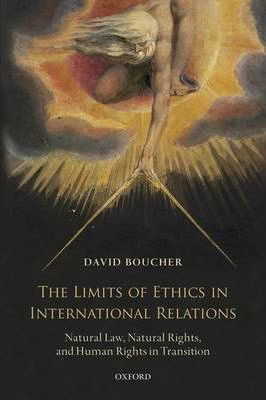
3:16: You’ve written about colonialism and the failures of decolonialisation – can you sketch for us your approach to these issues ?
DB: This question is related to the first in my mind. In my Limits of Ethics in Interntional Relations I argued that we have tended to misunderstand the relations between natural law, natural rights and human rights. Natural law is much closer in the world of ideas it inhabits to natural rights, than either are to human rights which rest upon completely different foundations. All are forms of universal ethics, which on closer inspection turn out to be special or restricted rights, for which you qualify by means, for example, of being fully rational, civilized and for most of history white male. This aspect of my work on colonialism focused on how so-called universal principles were used to oppressed blacks, native peoples, and women. It focused upon the justifications of imperialism from the point of view of the imperialists. More recently I have come to see the importance of seeing imperialism much more explicitly from the point of view of the colonized.
During the 1960s and 1970s, at the height of the methodological debates about how we should study texts, and what were the appropriate criteria in terms of which to construct the canon of political philosophers, liberation theorists around the world were complaining about the disingenuousness of the west. On the one hand fighting for human rights against fascism and Nazism, while denying those very rights to their colonies. Furthermore, they complained that western thinkers, even Marx, dehumanized Africa by first describing its inhabitants as savages, and secondly seizing its history and rewriting it as if it only began with the arrival of the colonists. And, thirdly, imposing alien languages, the carriers of different cultures, and suppressed and degraded indigenous tongues. Marx was inadequate to understanding the phenomenon because, while class was an important concept, it failed to explain the role of racism in the colonizing process. Indeed, Marx concurred with mainstream opinion in believing that history began for Africa when western countries colonized it.
These arguments were very powerful, yet they were completely ignored as if they had no place in modern political discourse. Of course, the decolonization movements tended to be demonized as barbaric and dangerous, the harbingers of Marxism and worst. Liberation theorists knew the western canon all too well, and were critical of it. However, their perceptions and criticisms played no part in the debates about how we should study political texts and why, and who should be included in the canon.
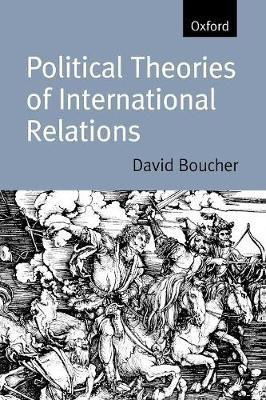
I’m afraid I came to this realization rather late in my career. I was introduced to South Africa by one of my former students, Camilla Boisen, in 2011 and have maintained a close relationship with the University of Johannesburg ever since, spending a couple of months a year there. It was experiencing the aftermath of apartheid and colonialism, and seeing at first hand the long shadow that imperialism cast over, not only Africa, but the whole world, including America, the Antilles, South East Asia and elsewhere, that I concurred with many ‘victims’ of colonialism that decolonization happened only in name, and that Neo-colonialism, the continuation of colonialism by other means, with the complicity of ruling elites who benefitted from the previous regimes, was still a stark reality. The desire to throw off the shackles of neo-colonialism is evident, for example, in the Rhodes must Fall campaign, and calls for the decolonization of the curriculum and of the mind. Mandela is still the darling of the west, while at the same time accused of selling-out by growing numbers of young South Africans, ironically as J. C. Smuts was when advocating human rights on the world stage at the United Nations, while oppressing native peoples at home.
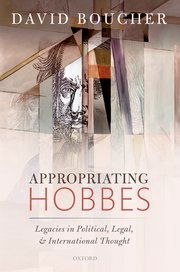
3:16: How do you characterize the political and legal legacies of Hobbes for political thinking in theories of international relations?
DB: This is a big question about which I have just written a book, Appropriating Hobbes: Legacies in Legal, Political and International Thought (2018). Let me just say that Hobbes’s characterization of the state of nature as ‘such a warre as is of everyman against everyman’, and describing its nearest analogue as relations between states was immensely influential, along with the implications it had for believing that international law was not law proper because it lacked a powerful sovereign to enforce it. In other words, the view that legal positivists took of Hobbes as an exponent of the doctrine that law is the command of the sovereign, came to influence many international relations scholars, especially realists. We might call this an idealization, or a caricature, an emblematic idea, which is useful as a shorthand for a position one might take in thinking about international relations, and we may label it Hobbesian, as Martin Wight and Hedley Bull did, but it is not Hobbes, as they themselves concede. There is a great deal in Hobbes, about equity in the law, which forces us to think differently about his contention that there is no justice and injustice in the state of nature. We really need to study The Elements of Law, De Cive and Leviathan (both the English and Latin version), and determine the full range and subtlety of the implications of his thought for international relations.
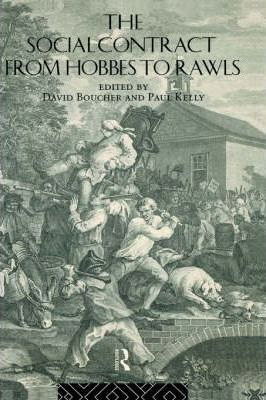
3:16: How important is Schmitt to contemporary thinking around the role of law and the state and totalitarian rule given that we seem to be seeing a resurgence of nationalism and varieties of nasty Authoritarianism around the world?
DB: This is all too depressing a subject. Schmitt’s critique of liberal parliamentary democracy, and his condemnation of the pluralism of points of view, advocating instead an homogeneous society, and conceiving the political in terms of friends and foes, as well as advocating decisionism and constitutional dictatorship -- the suspension of the rule of law -- offers a great deal of comfort for the modern authoritarian.
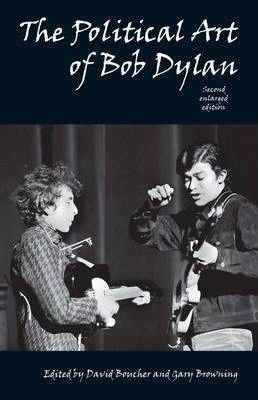
3:16: As a Dylan fan I have to ask you about how you assess Dylan’s political art – do you detect any political tradition that feeds into his songs and art at all?
DB: My work on Bob Dylan and Leonard Cohen has been motived by the question of what vocabulary is appropriate in terms of which to understand the expressions of two very different, yet politically influential, poets who were two iconic figures of the 1960s social revolutions and whose works endure and resonate today. This interest is related to my work on idealism in that I use the aesthetic theories of Collingwood and Oakeshott to develop some important distinctions and justifications of how we should understand the questions we ask of different poetic expressions. I found extending their theories to incorporate Lorca’s distinction between the poetry of imagination, and the poetry of inspiration particularly helpful. The poetry of imagination aspires to make sense of the unintelligible and chaotic, bringing some order and consistency to an unsettled surface. The poetry of inspiration delights and revels in mystery, taking our thoughts in all directions, into the deepest and darkest recesses. And this is where the idea of duende has particular force. Duende for Lorca, is a sense of disturbance, dislodging, edginess. The metaphor he uses is particularly powerful. He describes it at ground glass surging through one’s veins.
The protest, or finger-pointing songs, of the early 1960s, have a sense and reference. We can identify the characters and ask of the songs whether they are right or wrong in how they portray social inequality and racism. That is not to say that there were not glimpses of what Lorca would call the poetry of inspiration in some of the early songs, such as ‘Hard Rain’s A’gonna Fall’. Bob Dylan going electric at the Newport Folk Festival is seen as a watershed in his career, and many see it as a sell-out to commercialism. This fails to explain its true significance. The early Dylan exemplifies a movement of which he was part, with a collectivist outlook based on principles of social and political responsibility. Going electric constituted a rejection of the folk movement and its collectivist world view. The songs of the mid 1960s, such as Desolation Row, are dark, disturbing and dwell on the socially dysfunctional. We do not ask if the images are right or wrong, but instead delight in them. This move represented adopting a radical individualism, a bohemianism that characterized the community into which he now immersed himself, namely the Beats, and equally as importantly the bohemian example of Dylan Thomas. Dylan’s lyrics are often reproduced in Beat anthologies, and indeed, Cohen was described as the Beat of Belmont Avenue (in Montreal). The heavy weight of social responsibility is relinquished in favour of what Cohen once described as an ‘unconditional sense of social irresponsibility’.
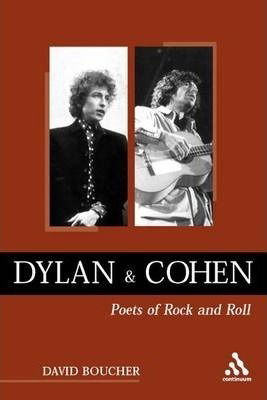
3:16: As an extra DB gave answers to the following survey!
DB:
a. A priori knowledge: yes or no?
No
b. Abstract objects: Platonism or nominalism?
Nominalism
c. Aesthetic value: objective or subjective?
Neither
d. Analytic-synthetic distinction: yes or no?
No
e. Epistemic justification: internalism or externalism?
Externalism
f. External world: idealism, skepticism, or non-skeptical realism?
Idealism
g. Free will: compatibilism, libertarianism, or no free will?
Don’t know
h. God: theism or atheism?
Scepticism
i. Knowledge claims: contextualism, relativism, or invariantism?
Relational
j. Knowledge: empiricism or rationalism?
Neither
k. Laws of nature: Humean or non-Humean?
Non-Humean
l. Logic: classical or non-classical?
Non-Classical
m. Mental content: internalism or externalism?
both
n. Meta-ethics: moral realism or moral anti-realism?
Moral anti-realism
o. Metaphilosophy: naturalism or non-naturalism?
Non-naturalism
p. Mind: physicalism or non-physicalism?
Non-physicialism
q. Moral judgment: cognitivism or non-cognitivism?
cognitivism
r. Moral motivation: internalism or externalism?
externalism
s. Newcomb's problem: one box or two boxes?
t. Normative ethics: deontology, consequentialism, or virtue ethics?
Virtue ethics
u.Perceptual experience: disjunctivism, qualia theory,
qualia theory
v. representationalism, or sense-datum theory?
representational
w. Personal identity: biological view, psychological view, or further-fact view?
Psychological view
x. Politics: communitarianism, egalitarianism, or libertarianism?
communitarian
y. Proper names: Fregean or Millian?
Fregean
z. Science: scientific realism or scientific anti-realism?
Scientific anti-realism
Ai. Teletransporter (new matter): survival or death?
death
Aii. Time: A-theory or B-theory?
Both
Aiii Trolley problem (five straight ahead, one on side track, turn requires switching, what ought one do?): switch or don't switch?
switch
Aiv. Truth: correspondence, deflationary, or epistemic?
correspondence
Av. Zombies: inconceivable, conceivable but not metaphysically possible, or metaphysically possible?
Metaphysically possible
3:16: And finally, are there five books other than your own that you can recommend to the readers here at 3:16 that will take them further into your philosophical world?
DB:
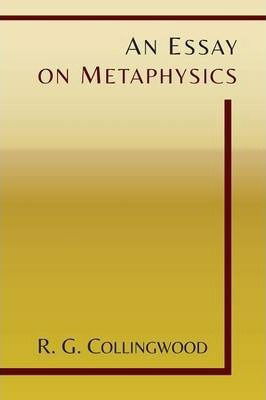
R. G. Collingwood, An Essay on Metaphysics
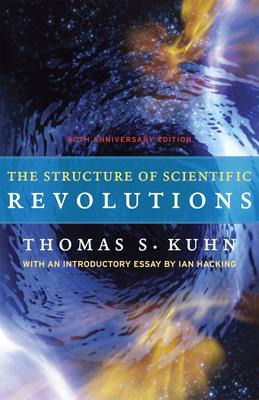
Thomas Kuhn, The Structure of Scientific Revolutions
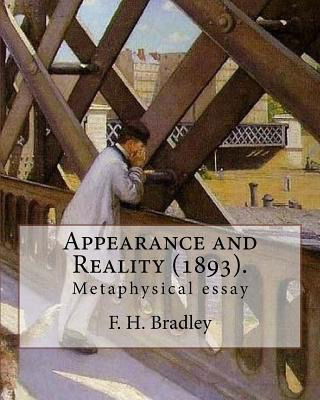
F. H. Bradley, Appearance and Reality
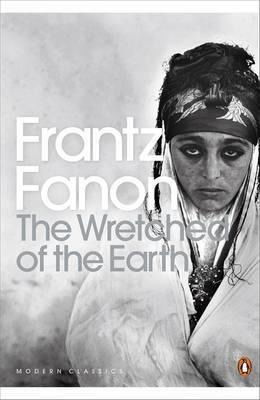
Frantz Fanon, The Wretched of the Earth
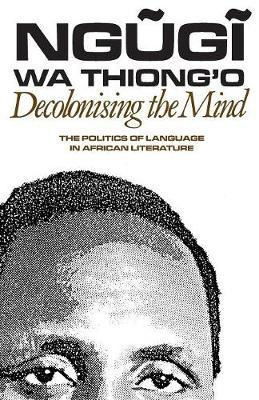
Ngũgĩ Wa Thiong’o, Decolonising the Mind
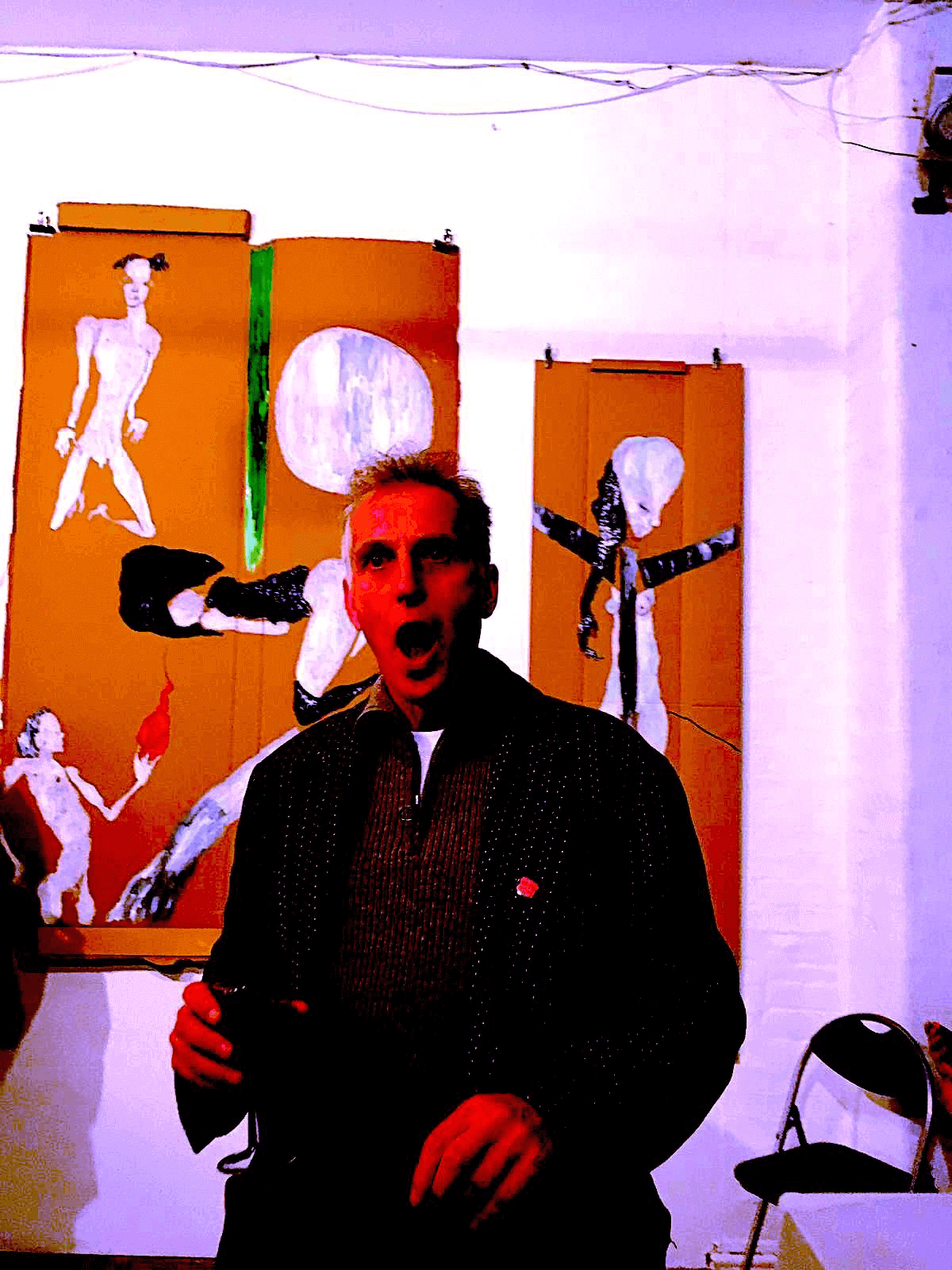
ABOUT THE INTERVIEWER
Richard Marshall is biding his time.
Buy his new book here or his first book here to keep him biding!
End Times Series: the index of interviewees